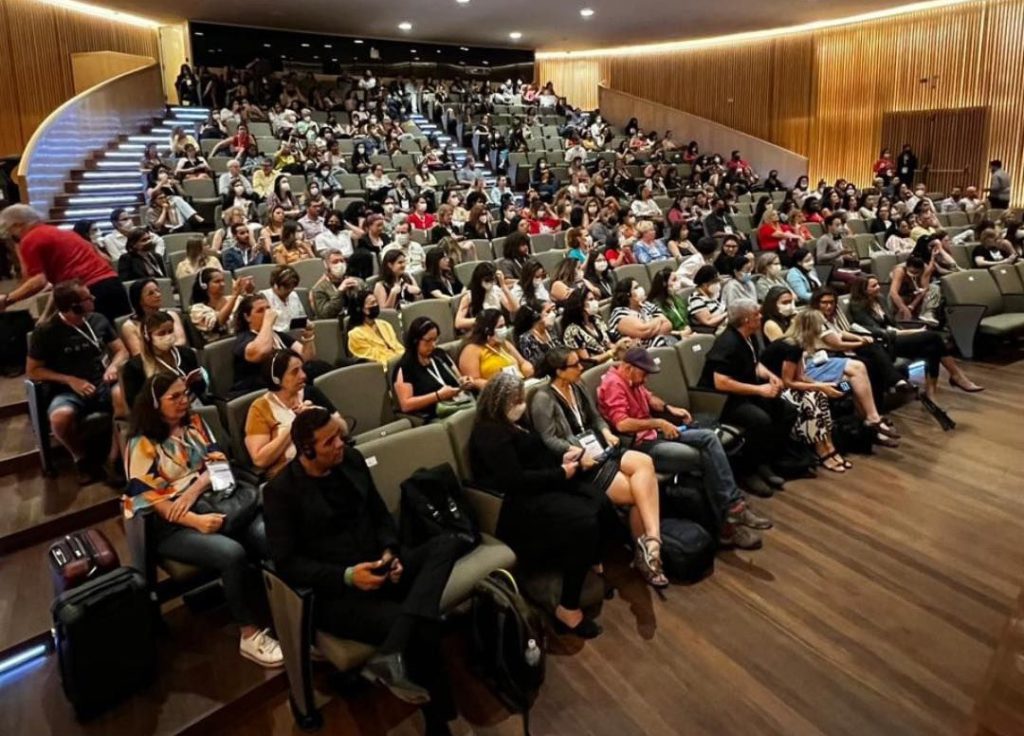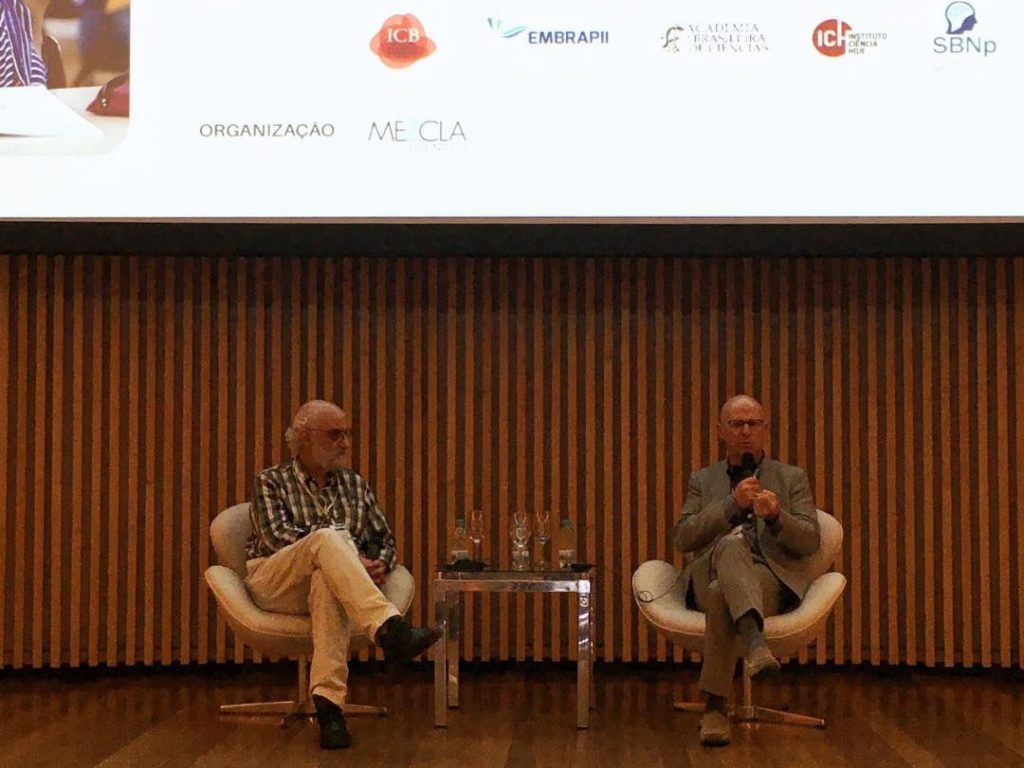- PT
- |
- EN

Public present in the Auditorium of the Museum of Tomorrow. Photo: Dr. Marília Guimarães/Rede CpE
Between the 17th and 19th of November, the V Annual Meeting of Rede Nacional de Ciência para Educação took place at the Museum of Tomorrow, in downtown Rio de Janeiro. The event was attended by Doctor Roberto Lent, neuroscientist from the D’Or Institute for Research and Education (IDOR) and coordinator of Rede Nacional de Ciência para Educação (Rede CpE), Doctor Fernanda Tovar-Moll, president of IDOR, and also the Doctor Marília Zaluar, researcher at IDOR.
The Rede CpE brings together researchers from areas such as neuroscience, computer science, mathematics, pedagogy, and psychology to conduct researches to promote the best educational practices. This makes it possible to take knowledge from the laboratory to the day-to-day activities of schools.
The meeting was attended by around 400 researchers, professors, undergraduate, and graduate students. Doctor Roberto Lent commented on the diversity among the audience. “Education involves several actors: researchers who seek to explain learning and invent new practices and solutions, teachers who apply and generate knowledge directly in the classroom, managers who manage the day-to-day activities of schools and school networks, and even politicians who work with the scale of municipalities, states and the country as a whole. So, the interaction of all these actors is desirable to scale up the best solutions for Brazilian education.”
The welcoming speech was given by Doctor Lent, who also facilitated the opening lecture, presented by neuroscientist Stanislas Dehaene, professor at the Collège de France, who commented on the pillars of efficient learning.

Dr. Roberto Lent e Dr. Stanislas Dehaene. Photo: Dra. Marília Guimarães/Rede CpE
On Saturday, Dr. Zaluar and Dr. Rochele Paz Fonseca (Rede CpE) commented on some results of the jointly developed research and brought up points of importance for the future of science in education, such as the translation of research into an uncomplicated language, training courses for teachers and materials for scientific dissemination.
Dr. Lent also mediated the lecture “Neuroscience and Education: looking at the future of learning” which had Leonor Bezerra Guerra (NeuroEduca – UFMG) and Ana Luiza Neiva Amaral (Rede SESI) as participants. Researcher Leonor highlighted the importance of modernizing education, while the neuroscientist also clarifies that the implementation of technologies for the development of critical thinking must be done with caution. “There must be certain parsimony with the use of screens, as excessive use of cell phones has been shown to negatively impact cognition and learning. In addition, it is necessary to adjust the content of what is on the screens, so that it is in tune with what students must learn, and to avoid the false information that walks through the internet without control”, he adds.
Finally, Doctor Roberto Lent closed the V Annual Meeting on Sunday by mediating the lecture by researcher Andrea P. Goldin, where the researcher emphasized that it is necessary to exercise cognition, but school spaces must be rethought. The neuroscientist commented that awakening students’ interest in science also goes beyond classrooms. “Not only classroom activities, especially those that are hands-on, but also activities in the field (visits to museums, excursions to places of historical, scientific, or geographical interest, etc.). The practical activities are much more attractive to students than the classic “blackboard and chalk” classes.”
The V Annual Meeting of Rede CpE brought together the experiences of teachers and the knowledge of researchers to debate the future of education in the country. “I see greater possibilities of returning to a more technical educational policy based on scientific evidence. Furthermore, I hope that it will be possible to recompose budgets for education at all levels. But we will only know if this expectation will come true in the coming months”, emphasizes Dr. Roberto Lent.
22.11.2022